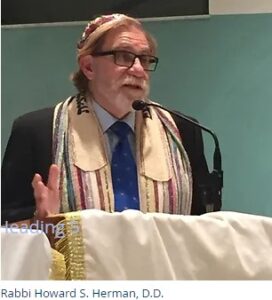Why Not Read a Jewish Book For A Change?
Even though I am an avid reader all year long, I find summertime a particularly good time to sit down with a good book and read. I know one can read just about anywhere, but I especially love reading at the beach. The sand, the smell of the water, and the sunshine are all particularly conducive to creating a great environment to read. So, while summer is just beginning, I want to encourage you this summer to read Jewish literature.
Reading Jewish literature is incredibly important for several reasons. It offers a deep insight into Jewish culture, history, and traditions, enriching our understanding of the Jewish experience. Here are some factors to consider:
- Cultural Understanding: Jewish literature provides a window into the rich tapestry of Jewish life, including religious practices, holidays, and customs. It helps readers appreciate the diversity and complexity of Jewish culture. Jewish literature provides a rich and nuanced portrayal of Jewish life, traditions, and customs. Through stories, poems, and essays, readers can gain a deeper appreciation for the diversity and complexity of Jewish culture. For example, works by Sholem Aleichem, such as “Tevye the Dairyman,” offer a glimpse into the daily lives of Eastern European Jews, their struggles, and their celebrations. These narratives help readers understand the significance of religious practices, holidays, and community life in Jewish culture
- Historical Perspective: Many works of Jewish literature delve into historical events that have shaped the Jewish community, such as the Holocaust, the founding of Israel, and the diaspora. These narratives offer valuable lessons and reflections on resilience, identity, and survival. Jewish literature is a valuable resource for understanding significant historical events that have shaped the Jewish community. The Holocaust, for instance, is a central theme in many works, providing firsthand accounts and reflections on the atrocities faced by Jews during World War II. Elie Wiesel’s “Night” and Primo Levi’s “If This Is a Man” are poignant examples that document the horrors of the Holocaust and explore themes of survival and identity. Additionally, the founding of Israel and the experiences of the Jewish diaspora are frequently depicted in literature, offering insights into the political, social, and emotional challenges faced by Jews throughout history
- Philosophical and Ethical Insights: Jewish literature often explores profound philosophical and ethical questions. Texts like the Talmud and works by Jewish philosophers provide deep reflections on morality, justice, and human nature. Jewish literature is a valuable resource for understanding significant historical events that have shaped the Jewish community. The Holocaust, for instance, is a central theme in many works, providing firsthand accounts and reflections on the atrocities faced by Jews during World War II. Elie Wiesel’s “Night” and Primo Levi’s “If This Is a Man” are poignant examples that document the horrors of the Holocaust and explore themes of survival and identity. Additionally, the founding of Israel and the experiences of the Jewish diaspora are frequently depicted in literature, offering insights into the political, social, and emotional challenges faced by Jews throughout history
- Literary Contributions: Jewish authors have made significant contributions to world literature, producing works that are both culturally significant and universally resonant. Writers like Isaac Bashevis Singer, Elie Wiesel, and Philip Roth have penned stories that address themes of love, loss, and the human condition. For example, Isaac Bashevis Singer’s stories often reflect the life of Jews in Eastern Europe, capturing the essence of Jewish folklore and tradition. Elie Wiesel’s “Night” provides a powerful account of the Holocaust, while Philip Roth’s novels explore the Jewish-American experience, offering insights into the cultural and social challenges faced by Jews in America
- Community and Identity: Reading Jewish literature can foster a sense of community and identity, especially for Jewish readers. It connects them to their heritage and provides a sense of belonging and continuity. Through stories, poems, and essays, readers can gain a deeper appreciation for the diversity and complexity of Jewish culture. Works like Sholem Aleichem’s “Tevye the Dairyman” offer a glimpse into the daily lives of Eastern European Jews, their struggles, and their celebrations. These narratives help readers understand the significance of religious practices, holidays, and community life in Jewish culture
- Educational Value: Jewish literature is a valuable educational resource that can be used in academic settings to teach about Jewish history, religion, and culture. It promotes a more inclusive and comprehensive curriculum, helping students understand the rich tapestry of Jewish life. Texts like the Talmud and works by Jewish philosophers provide deep reflections on morality, justice, and human nature. Additionally, many works of Jewish literature delve into historical events that have shaped the Jewish community, such as the Holocaust, the founding of Israel, and the diaspora. These narratives offer valuable lessons and reflections on resilience, identity, and survival.
Jewish literature provides a multifaceted exploration of these themes, enriching our understanding of Jewish culture, history, and philosophy. If you have any specific books or authors in mind, I’d be happy to provide more detailed information or recommendations!
So, this summer let’s read!
Shalom Uvracha
Rabbi Howard S. Herman DD

